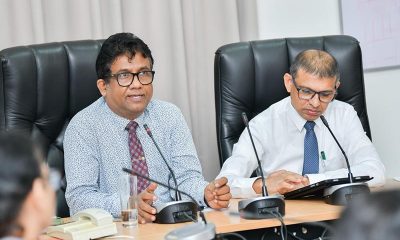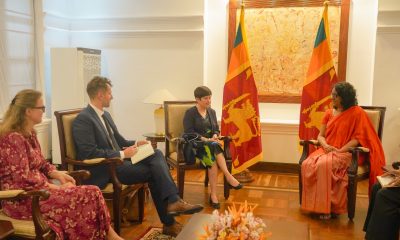Business
‘Record Q4 enables Teejay to end 2021 strong despite pandemic’
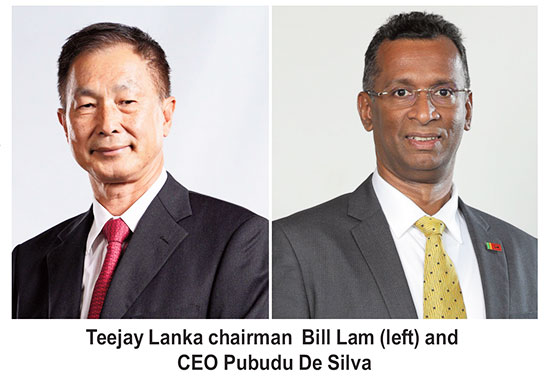
Strong revenue and profit growth in the fourth quarter at both Group and Company level have enabled Teejay Lanka PLC to significantly minimise the impact of the pandemic-affected first quarter on the Group’s full-year results and end 2020-21 on a resilient footing.
Sri Lanka’s top textile manufacturer has reported profit before tax of Rs 902.8 million at Group level for the three months ending 31st March 2021, reflecting growth of 67% over the corresponding quarter of the previous year, with revenue growing 40% to Rs 9.770 billion, its highest quarterly revenue since inception.
Group profit after tax improved by an even more impressive 80% to Rs 760.8 million. Over the preceding three quarters of the year, Teejay Lanka posted a Q1 net loss of Rs 31.5 million, a net profit of Rs 631.3 million in Q2, and a net profit of Rs 778.4 million for Q3.
Revenue for the quarter at company level was up 56% to 6.297 billion, profit before tax grew by 52% to Rs 599.4 million and net profit increased by 65% to Rs 575 million, Teejay Lanka said in a filing with the Colombo Stock Exchange (CSE).
As reported in previous disclosures of quarterly results, the impact of the extreme adversity of the first quarter of the year continued to be visible in the Group’s cumulative results for the full year, albeit at substantially lower levels than witnessed at the preceding quarters. Group revenue for the year ending 31st March 2021 was down 4% to Rs 31.853 billion, in contrast to the 16% decline at the end of Q3.
Similarly, Group profit before tax for the year, at Rs 2.650 billion reflected a reduction of 6% as against 26% at the end of Q3, while profit after tax for the year declined by 10% to Rs 2.139 billion, improving significantly from 30% negative as at 31st December 2020.
Commenting on these results, Teejay Lanka chairman Bill Lam said: “I’m happy to announce that as a Group, Teejay has performed well in the 2020-21 financial year while battling with the pandemic. The Group was able to continue its operations at all three plants by adhering to government health protocols to cater to the world fashion and textile industry.”
He disclosed that the Group closed the year with a consolidated debt-free balance sheet, with a cash balance of Rs 6.2 billion.
Teejay Lanka CEO Pubudu De Silva said the Group had kept administration costs to Rs 1.356 billion which is a decline of 5%, while marketing and distribution costs were curtailed to Rs 148 million, a decline of 24%. An increase in yarn prices seen in the fourth quarter will continue to be prevalent in the first quarter of the new year, he said.
De Silva said the expansion of Teejay’s India plant is within the planned timeline despite the disruptions of the Covid-19 pandemic. The investment of US$ 26 million will result in the plant’s daily output increasing to 20 tons, and contribute to the Group’s target of becoming a US$ 300 million business. “Furthermore, our investments to modernise the plants in both India and Sri Lanka are in progress,” he said. “These investments made in these turbulent times will undoubtedly position Teejay as the leader in the textile arena of South Asia and will establish the company’s footprint to compete in the market in the new normal environment.”
Teejay Lanka was adjudged the Best Textile Exporter in Sri Lanka at the Presidential Export Awards presented by the Export Development Board (EDB) in 2019, moved up three places in the Business Today Top 30 companies ranking that year and was named among the 100 Most Respected Companies in Sri Lanka by LMD.
An ISO 9001:2015, ISO 14001:2015 and OHSAS 18001:2007 compliant company and the first in the industry to develop green fabric, Teejay has been listed on the Colombo Stock Exchange (CSE) since 2011 and was included in the S&P Top 20 Index in Sri Lanka. The Company has also been named among the Forbes ‘200 Best under a Billion in Asia’ and been recognised as the ‘International Textile Firm of the Year’ and the ‘International Dyer and Finisher’ by World Textile Institute, London.
–Teejay Lanka
Business
Human-elephant conflict mitigation efforts intensify
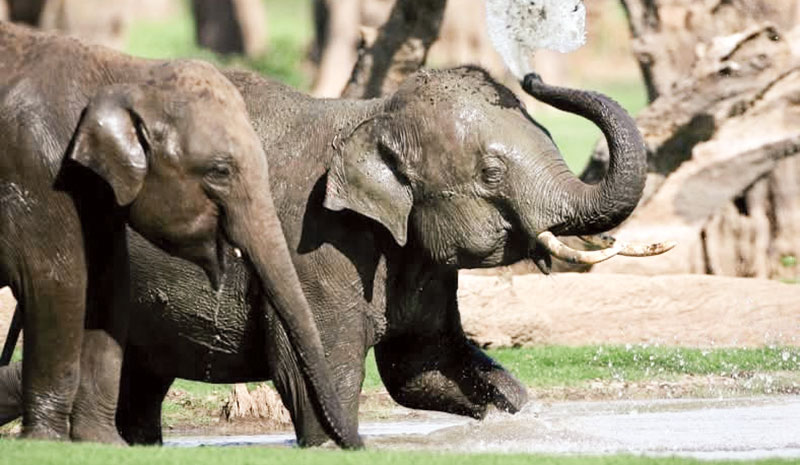
The Sri Lankan government has intensified its efforts to mitigate human-elephant conflicts and reduce elephant fatalities, allocating substantial funds in the 2025 budget for elephant conservation. The Department of Wildlife Conservation (DWC) has introduced a range of targeted measures, emphasizing public participation and localized interventions.
Recognizing the critical role of local communities, the government has launched awareness programs in high-risk Grama Niladhari divisions. By 2025, 23 villages have been identified for intervention, with 43 awareness programs planned. These initiatives aim to educate residents on coexistence strategies and reduce human casualties.
To physically deter elephants from entering villages, authorities are fast-tracking the construction of electric fences and the establishment of watch posts. The Civil Security Force will play a key role in these operations, enhancing protection through continuous monitoring and rapid response mechanisms.
In response to the alarming rise in illegal elephant killings, the government has reaffirmed its commitment to enforcing the Flora and Fauna Protection Ordinance. The Department of Wildlife Conservation has warned that perpetrators who engage in poaching or use firearms and explosive traps will face severe legal consequences, including criminal prosecution and heavy penalties.
Commenting on these developments, Ranjan Marasinghe, Director General of the Department of Wildlife Conservation, stressed the urgency of the situation:
“Sri Lanka’s wild elephant population is an invaluable national asset and balancing conservation with human safety is a top priority. Our latest initiatives integrate community-driven solutions with stronger legal enforcement to ensure the long-term survival of elephants while protecting human lives.”
Manjula Amararatne, Director of Protected Area Management, emphasized the department’s proactive stance:
“By enhancing physical deterrents such as electric fences and engaging local communities in conservation efforts, we are creating sustainable solutions to minimize conflicts.”
Meanwhile, U.L. Taufiq, Deputy Director (Elephant Conservation), stressed the role of law enforcement:
“Illegal elephant killings must stop. We are working closely with the judiciary to ensure those responsible face the full extent of the law.”
by Ifham Nizam
Business
Central Bank vows trickle-down relief to the people
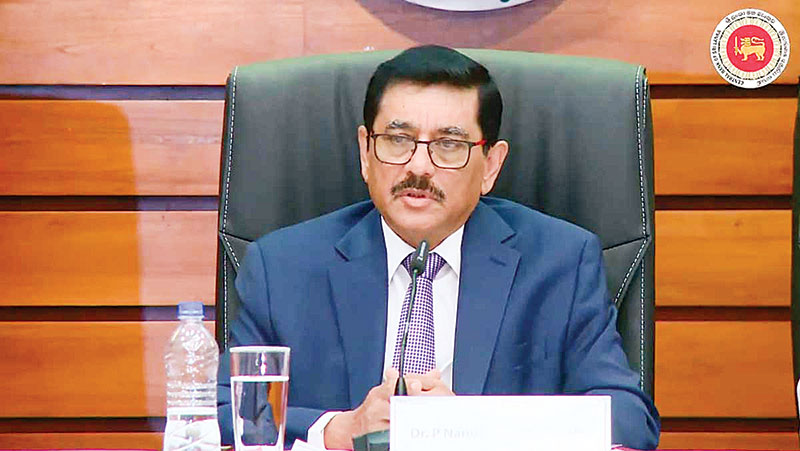
Dr. Nandalal Weerasinghe, Governor of the Central Bank of Sri Lanka, assured on Wednesday that a systemic economic “trickle-down” effect would create new employment opportunities, generate greater economic dividends, and provide better government services to the people, among other benefits.
The Governor’s remarks came in response to a question posed by The Island Financial Review:
The Island: “Governor, Sri Lankan banks have reported robust profits and strong balance sheets, yet ordinary citizens remain trapped in a daily struggle for survival. At a recent business forum, a prominent banker argued that the ‘trickle-down effect’ would eventually alleviate public hardship. Do you agree with this theory, and if so, when will Sri Lankans actually feel relief in their lives?”
Governor: “The banking sector’s return on equity aligns with sustainable business practices. The banking industry, like tourism, manufacturing, or any other sector, must generate reasonable profits to survive and expand. This profitability is not unique to banks; it is a prerequisite for broader economic recovery. During the crisis, many sectors collapsed, but banks could not afford losses, as public trust hinges on their stability. Had banks failed, depositors would have panicked, triggering a bank run. We instructed banks to prioritise stability while accepting modest profits during the worst of the crisis. Their current profits remain disproportionate compared to other sectors. As the economy strengthens, recovery will generate jobs, dividends, and services, enabling the trickle-down effect to reach all citizens.”
The Governor made these remarks during the Q&A session following the second Monetary Policy Review for the period up to March 2025.
When asked whether the Central Bank was intervening to safeguard the rupee, the Governor replied, “We have been purchasing US dollars—we buy dollars from the market.”
On foreign exchange supply and demand, he stated, “It fluctuates daily for various reasons. In February and March 2024, we observed foreign inflows into government securities. Meanwhile, exporters and the remittance sector are performing well. Import demand remains stable at healthy levels. Thus, there is a ‘nice balance’ between foreign exchange inflows and outflow.”
According to the Review, rupee liquidity remains in surplus, and market interest rates continue to decline in line with the eased monetary policy. Credit flows to the private sector remain robust, supported by low interest rates. The Central Bank expects this trend to continue, bolstering domestic economic activity.
The Governor also noted that car import orders received thus far total approximately USD 200 million.
Authorities had initially projected USD 1 billion would be required to meet the car import demand after an import ban that lasted nearly 5 years and that would help accrue significant amount of taxes to the Treasury.
By Sanath Nanayakkare
Business
CEAT Kelani reaffirmed by CPM as one of Sri Lanka’s best-managed companies
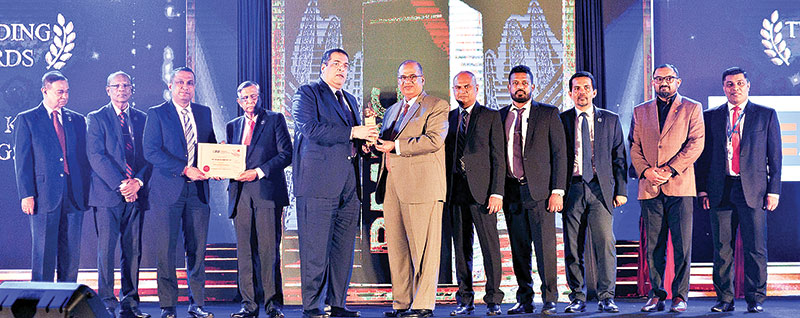
CEAT Kelani Holdings has been adjudged the best-managed tyre manufacturing company in Sri Lanka and reaffirmed as one of the top 20 companies in the country for best management practices, by the Institute of Chartered Professional Managers (CPM) Sri Lanka.
The company received the Category Award in the ‘Tyre, Rubber, Metal & Wood Furniture’ sector at the 2025 edition of CPM’s ‘Best Management Practices Company Awards’ in addition to the Top 20 award presented at the awards gala. This is the second consecutive year that CEAT Kelani was recognised as one of the best managed companies in Sri Lanka.
The CPM awards honour the best practices in management in terms of leadership, policies and strategies, people management, partnerships & resources, processes and performance.
“Awards of this nature will encourage us to strive for even greater heights in management practices, adopting global best practices in aligning strategic direction with a people-centric approach,” CEAT Kelani Managing Director Ravi Dadlani said. “We have already shattered the stereotype for large-scale manufacturing operations and are considered a case study for a successful privatisation of a state-owned enterprise, with unprecedented achievements in productivity, product development, deployment of new technology, research and development, market leadership, sustainability and good corporate citizenship.”
He said CEAT Kelani has transformed from an “inside-out” company to an “outside-in” organisation, placing customer and market centricity at the core of everything it does. This shift is reinforced through regular market visits by employees at all levels, including management, shop floor staff, and all business functions.
-

 News6 days ago
News6 days agoSeniors welcome three percent increase in deposit rates
-

 Features6 days ago
Features6 days agoThe US, Israel, Palestine, and Mahmoud Khalil
-
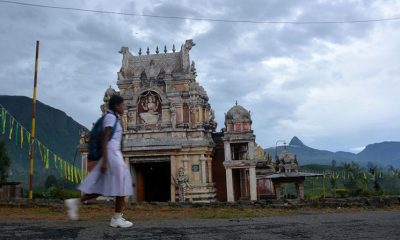
 News6 days ago
News6 days agoScholarships for children of estate workers now open
-
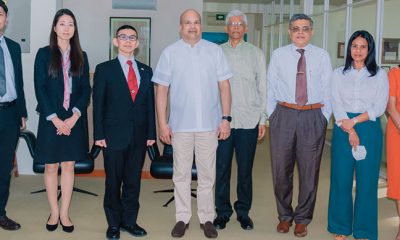
 News7 days ago
News7 days agoDefence Ministry of Japan Delegation visits Pathfinder Foundation
-

 Foreign News4 days ago
Foreign News4 days agoBuddhism’s holiest site erupts in protests over Hindu ‘control’ of shrine
-
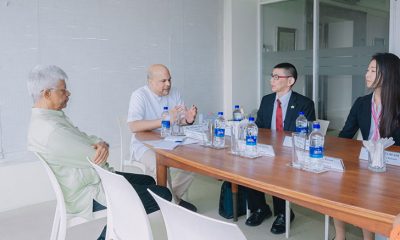
 News6 days ago
News6 days agoJapanese Defence Delegation visits Pathfinder
-

 Editorial7 days ago
Editorial7 days agoWhen promises boomerang
-

 Features3 days ago
Features3 days agoCelebrating 25 Years of Excellence: The Silver Jubilee of SLIIT – PART I


